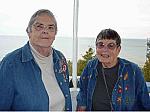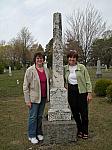
Etta S. Wilson, Reporter and 'Bird-Woman'
by Cindy Laug and Connie Ingham
published: September 26th, 2009
The story of Etta Smith Wilson is a uniquely American one. Born in 1857, she was the granddaughter of Congregational missionaries and the great granddaughter of Odawa (Ottawa) Chief, Joseph Wakazoo. Etta’s parents, Mary Jane Smith, daughter of the missionaries, and Payson Wolfe, grandson of Chief Joseph and son of the Indian princess Kin-ne-quay, were married in 1851. Both families strongly opposed the marriage due to the contrast in their cultures and way of life. Yet Etta was able to accept and integrate the values and contributions of both races and cultures to become a successful journalist, an advocate for women, and a nationally renowned lecturer in the field of ornithology.(Find more information to your right in Related Items)
Our thanks to Susan E. Gray whose extensive research and encouragement on the Wolfe/Smith family was key to compiling this essay.
In 1836 Wolfe's maternal uncles solicited financial support for a mission school based on a stipulation in the federal treaty settlement. Instruction in the elements of "civilization" was a requirement for the tribe to keep their land. Mary Jane's father, Rev. George Nelson Smith, had the calling to teach and preach to the Odawa which led to the formation of the Old Wing Mission in 1839 near Holland, Michigan. Smith taught himself the Odawa language, preached in Odawa, and served as interpreter whenever federal officials or other whites needed a translator.
By 1849, when interference with Dutch settlers over the land became intolerable, Rev. Smith and others headed north on Lake Michigan while fifty Indians followed in their canoes. The Old Wing Mission landed on the Leelanau Peninsula, founding what would become the town of Northport.
Payson and Mary Jane attended the Mission School together. Both were bilingual. By July, 1851, they had fallen in love and married. Over the next twenty-year period thirteen children were born to the couple. It became increasingly difficult to support the large family and tensions repeatedly surfaced over their differences and expectations. The greatest stress came from the physical and psychological cost of the Civil War.
Etta was born in 1857 in Leelanau County, MI. She was the 3rd child of Payson and Mary Jane. Her white grandparents were actively involved in her schooling and had expectations that she receive a formal education by the standards of white culture. Her father, Payson, and her paternal grandmother and medicine woman, Kin-ne-quay, taught her about the natural world, surviving in it, and developing a love for it. As a child, she helped gather the passenger pigeons that her father hunted and shot from the sky. She watched her grandmother boil roots, herbs and leaves in huge kettles making medicine for her healing practice.
During the Civil War, Wolfe, a member of Co. K, First Reg. of MI Sharpshooters, an all Native American Company, was captured at Petersburg, VA and incarcerated in Andersonville Prison. Wolfe survived the experience but was severely injured. Payson and Mary Jane divorced in 1879.
Due to the influence and expectations of her grandparents, the Smiths, Etta arrived in Grand Rapids during the mid-1870s to attend high school. She became known as Etta Smith Wilson in 1881 when she married Wesley T. Wilson. Securing her early training at the Grand Rapids Herald in 1886, she was among the early women who did regular newspaper reporting in Michigan. In 1888 the Telegram-Herald listed Etta as society editor, the first in the city. In 1901 she was recruited by the Detroit Journal-News to launch their women's page.
An ambitious reporter, she studied topics of interest to men which allowed her to be a more valuable resource in the newsroom. She reported on sports, men's business meetings, court and police work, state and political news, and interviewed Susan B. Anthony on women's suffrage. An active member in the Grand Rapids Press Club she was also a founding member of the Michigan Women's Press Association and the Michigan Women's Press Club. In Detroit she was a member of the Detroit Press Club, later the Detroit Women Writers' Club. When a severe illness in 1906 ended Etta's career as a reporter, she turned to the study of birds.
Etta spent the next twenty eight years watching, identifying, reporting their habits, and working toward their preservation. Her new ambitious and lucrative work allowed her to follow the winged creatures from the Atlantic to the Pacific, from Lake Superior to the Gulf of Mexico, from Florida to Alaska studying their patterns of migration, identifying and reporting her findings. Her passion for this new profession is reflected in two of her many articles, "Taming Wild Birds" and "Personal Recollections of the Passenger Pigeon," available below. When Etta Smith Wilson passed away in Detroit in 1936, the American Ornithologists' Union lost a careful student, and the birds of North America a devoted friend.
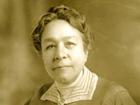
Grand Rapids Historical Commission and the Community Media Center present Glance at the Past. This week's episode tells of Etta Smith Wilson, Grand Rapids' first woman reporter.
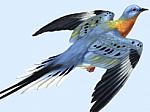
Michigan and Grand Rapids played an unfortunate role in the worst example of mass extermination by humans in the history of wildlife, the Passenger Pigeon.
Bibliography
Books Available at the Grand Rapids Public Library
- Old Wing Mission: cultural interchange as chronicled by George and Arvilla Smith in their work with Chief Wakazoo's Ottawa band on the West Michigan frontier. Robert P. Swierenga & William Van Appledorn, editors. Wm. B. Eerdmans, 2008.
Books available at the History and Special Collections Dept., GR Public Library
- Old Wing Mission: cultural interchange as chronicled by George and Arvilla Smith in their work with Chief Wakazoo's Ottawa band on the West Michigan frontier. Robert P. Swierenga & William Van Appledorn, editors. Wm. B. Eerdmans, 2008
- Cappel, Constance. Odawa Language and Legends. Xlibris, 2006
- McClurken, James M. Gah-baeh-jhagwah: The Way it Happened, A Visual Culture History of the Little Traverse Bay Bands of Odawa. Michigan St. Univ. Museum, 1991
- White, Arthur S. Reminiscences of Editors and Reporters. White Printing, 1921

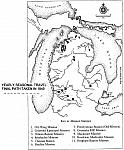
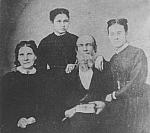
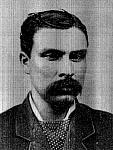

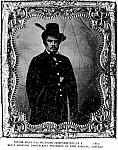
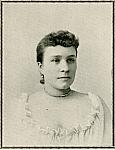

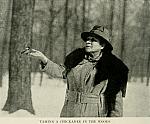
 facebook
facebook


